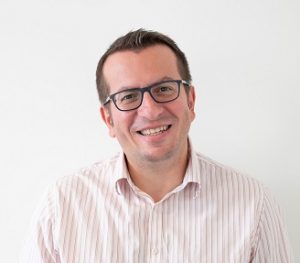
How do you rate the present position of the Macedonian national minority in Greece?
The Macedonian minority in Greece is still fighting for its basic human rights, such as to be able to learn the Macedonian language at public schools in the places where Macedonians live and speak the language; to be able to have associations bearing the name “Macedonian” without issues.
At the end of the day, Macedonians must be free to call themselves as they wish and feel, without the fear of repercussions. This process is neither easy nor fast, but still, there have been small steps moving forward.
A very encouraging fact is that more and more young Macedonians become active, they look for their roots, they get together without prejudices or fear, they produce new forms of Macedonian culture and effectively lead this process.
How does the Macedonian minority in Greece organize itself and what kind of problems does it face?
As you know, we have the Vinozhito political party, we also have Home of Macedonian Culture, an association fighting to be registered for more than 30 years now. Despite the verdicts of the European Court of Human Rights (ECHR), Greece still refuses to comply and register it.
All around Aegean Macedonia you can find cultural/folklore associations, from Lerinsko (Florina) to Dramsko (Drama), we have NGOs that promote the Macedonian language. The main problem, however, remains the attitude of Greece.
The Prespa Agreement did not really change anything in the daily lives of Macedonians, despite all the declarations and promises. The clearest example of the unchanged attitude by the Greek state can be found in the case of the Macedonian association “Cyril & Methodius” in Dolna Dzumaja, Sersko.
They were initially registered by the court in the city of Ser (Serres) but when ultra-right wing and fascist organizations started to protest, this registration was overturned. The Solun (Thessaloniki) higher court rejected the appeal of “Cyril & Methodius” and now the case has gone to the Supreme Court and eventually to the European Court for Human Rights because no one really believes that Greek courts are independent and will not defend the country’s official position – “No Macedonians in Greece” – till the end.
And do you know what is really sad and funny at the same time? That even the term “autochthonous language” (dopia in Greek), that was used by C&M to avoid complications and be able to register, now seems to annoy the Greeks. Even that terminology is no longer acceptable for them. You can understand in which situation we are in.
Are there members of the Macedonian minority who work for institutions of the state?
Of course there are – in the police, in other state bodies as well. But they find it very hard to say they are Macedonians. The majority of people remain silent due to the reasons already mentioned.
We had some Macedonian MPs in the Greek parliament as well, not so long ago. Even the president was a Macedonian from the village of Mavrovo, Kostursko (Kastoria). But unfortunately, they either keep their mouths shut or pass to the complete opposite side, becoming the fiercest Grkomani and trying to be more Greek than Greeks themselves.
Do you have a message for the Macedonian national minority in Greece?
The worst times are behind us, however, progress comes in a very slow pace. It is in our turn to move faster since we do not have anything to fear anymore.
We are many, a lot, and official Athens knows this and is constantly afraid from a massive awakening of the Macedonian consciousness, hence does everything to hinder that.
Macedonians should not allow or tolerate this anymore. They have had enough in the decades of horror, denial, silence. Now we live in European times that go hand in hand with respect for diversity in any form.
United, with other Greek citizens, we must fight to make Greece a contemporary European democracy, where Macedonians, Turks, Vlachs and others can live and prosper without any imposed conditions. That kind of change is only a matter of time.
Macedonian newspaper “Ilinden”
Editor-in-Chief: Nikola Gjurgaj
 Македонски весник Илинден – Makedonski vesnik Ilinden
Македонски весник Илинден – Makedonski vesnik Ilinden